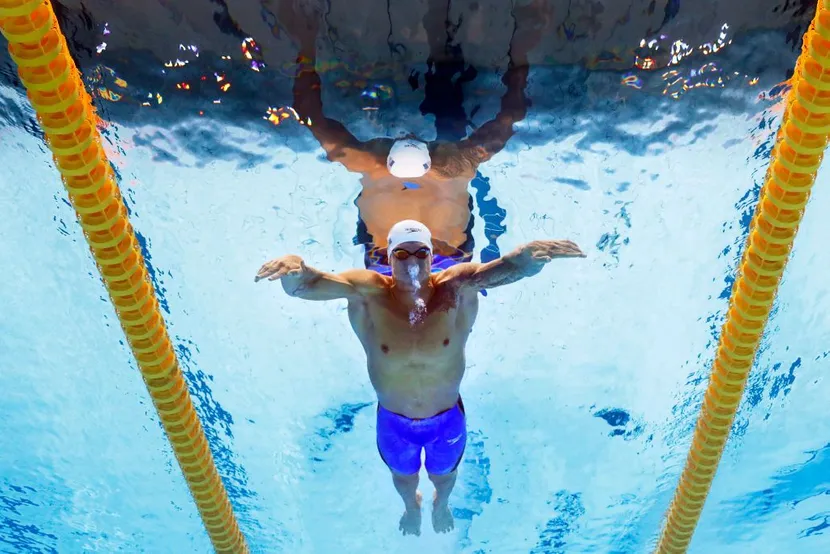The evolution of the men’s 100m butterfly world record progression has exceeded all expectations over the years. Following the ban on ‘supersuits’ in 2009, many thought it would take decades before new world records were set during international aquatics events. After a decade of athletic progression, aquatics competitors have demonstrated that swimming has moved beyond the supersuit era.
Let’s dive into the FINA archives and explore the 100m butterfly progression.
In 1980, William Paulus from Fort Worth, Texas earned a spot on the 1980 U.S. Olympic Team after winning the 100m butterfly at the U.S. Olympic Trials with a time of 54.34. Unfortunately, Paulus wouldn’t get the opportunity to compete at the Moscow 1980 Summer Olympics due to a US-led boycott of the Games.
Despite this, a year later at the Texas Swimming Center, Paulus became the first man to break 54 seconds in the men’s 100m butterfly, clocking in at 53.81 and beating the previous record of 54.15, held by Par Arvidsson of Sweden.
In 1997, Michael Klim, dubbed Australian Swimming’s “butterflying machine” by Swimming World Magazine, continued to tread new territory in the men’s 100m butterfly. Klim would become the first swimmer in history to break the 52-second barrier, clocking 51.81 in a FINA-sanctioned time trial. Klim’s achievements would see him named Male Swimmer of the Year by Swimming World Magazine in 1997.
Fast forward to 2009 and the 13th FINA World Championships in Rome. 43 new world records were smashed at the Foro Italico, including the men’s 100m butterfly. Milorad Cavic from Serbia swam a 50.01 in the semi-final to break Michael Phelp’s previous record of 50.22 set earlier in the same month. That, however, wouldn’t last for very long.
As an athlete that thrived on pressure and big races, Phelps was totally focused on reclaiming the record in the final in what was labelled “a heavyweight fight.” The American did just that, becoming the first swimmer to break 50 seconds in the 100m butterfly with a time of 49.82.
“I was very, very strong toward the end,” Cavic told Associated Press. “But Michael Phelps is Michael Phelps and he does what he does – and he did.”
With 147 world records broken in 2019, 43 coming from the 13th FINA World Championships in Rome, a ban on full bodysuits would be implemented by FINA shortly after, coming into effect on 1 January 2010.
“I was very, very strong toward the end. But Michael Phelps is Michael Phelps and he does what he does – and he did.”By Milorad Cavic
Since then, it was going to take something very special to set a new benchmark.
Enter American powerhouse Caeleb Dressel. After unleashing a 49.50 in the 100m butterfly at the 18th FINA World Championships in Gwangju in 2019, the butterfly specialist was hitting serious form ahead of the Tokyo 2020 Olympic Games.
Despite Tokyo 2020 being shifted to the summer of 2021 and so much uncertainty around the COVID-19 pandemic, Dressel would claim his third of five golds achieved to Tokyo 2020 and set the current 100m butterfly world record of 49.45 seconds, shaving 0.05 of a second off his previous record. Not bad for his first world record at an Olympic Games.
Source: FINA

